Comments from Dang Qiu — The Winner of the Men’s Singles and the Mixed Doubles at WTT Contender Lima

Photo: courtesy of WTT
Comments were received from Dang Qiu (GER) who won the men’s singles and the mixed doubles events at the WTT Contender Lima held in Lima, Peru from June 14 to 19, 2022.
— How do you feel after securing the titles in the men’s singles and the mixed doubles events at the WTT Contender event held in Lima, Peru?
It was my third WTT final and finally I managed to win this time. So, it was special for me because it is never easy to win a tournament, specially at Contender events these days where the competitors are all quite strong. So, I'm quite happy. It is the same for the mixed doubles; it was my first title in the mixed doubles after the European Championships.
— Regarding the mixed doubles with Nina Mittelham, you have acquired great results internationally, including the title at the 2021 European Championships. In Lima, the final was a tough match for you and the opponents had two match points; how was the match?
Yes, the final was a very tough one for us because it was our fourth match of the day and we played very late in the night. Our opponents played very well against us technically and tactically. We were very lucky that we could come back from 0-2 and save two match points especially to win our first title.
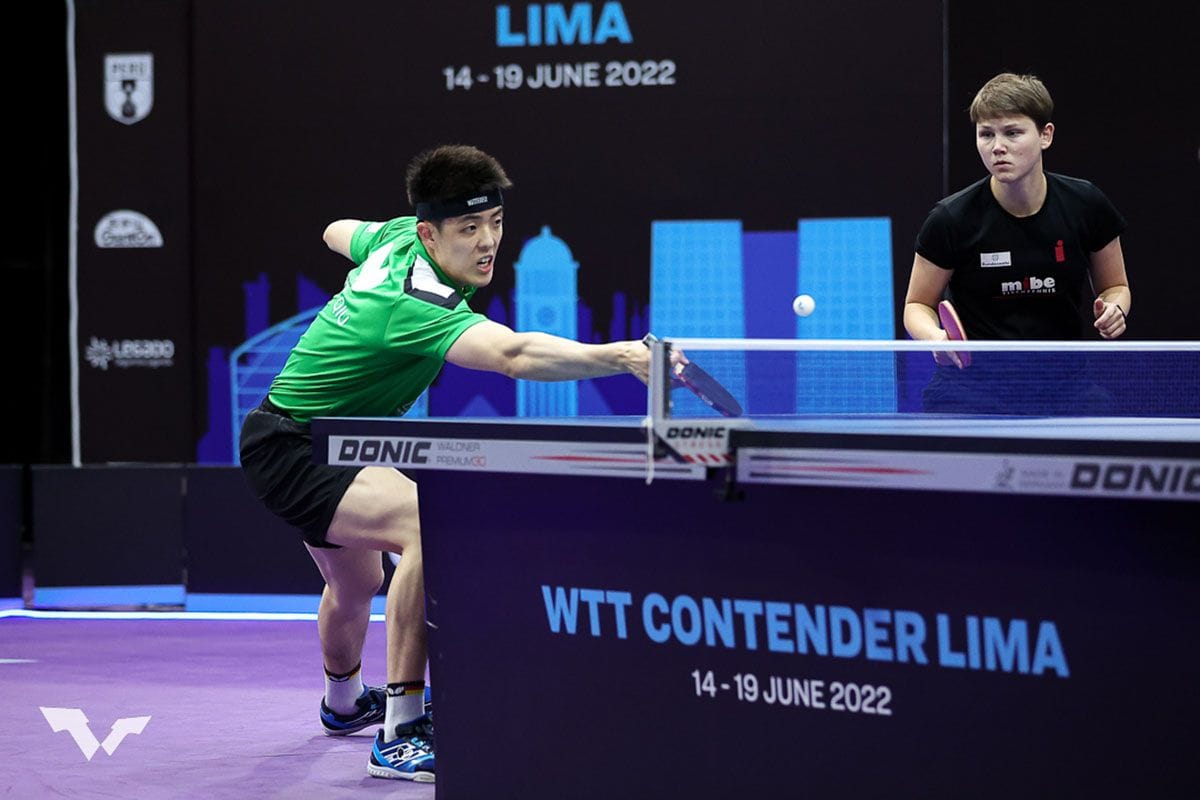
— In the singles event, you played against young players such as Hayate Suzuki (JPN) and Kay Stumper (GER) in early rounds and Ryoichi Yoshiyama (JPN) in the quarter-finals. How did you overcome the matches against those young players with momentum?
Yes, I played against very young players in the first three rounds. Suzuki came from the qualification round, so I did not really know how strong he was. I found he was quite good because he had beaten Can Akkuzu (FRA) 3-0 in the qualification, so I prepared myself, watching a few videos of him and I felt quite comfortable in the match. Regarding Stumper, of course, we know each other well from practice, so I could manage the match. Then I had Yoshiyama, who is also quite strong. I knew that he had reached the quarter-finals at All-Japan Championships in 2022 and he had beaten Liam Pitchford (ENG) previously.
So, I knew that they would perform very well. They showed that despite their age they could display a very high-quality table tennis game. I just played how I had been used to play as always and am happy that I could pull through with my game and win all these three matches against hopeful young players.
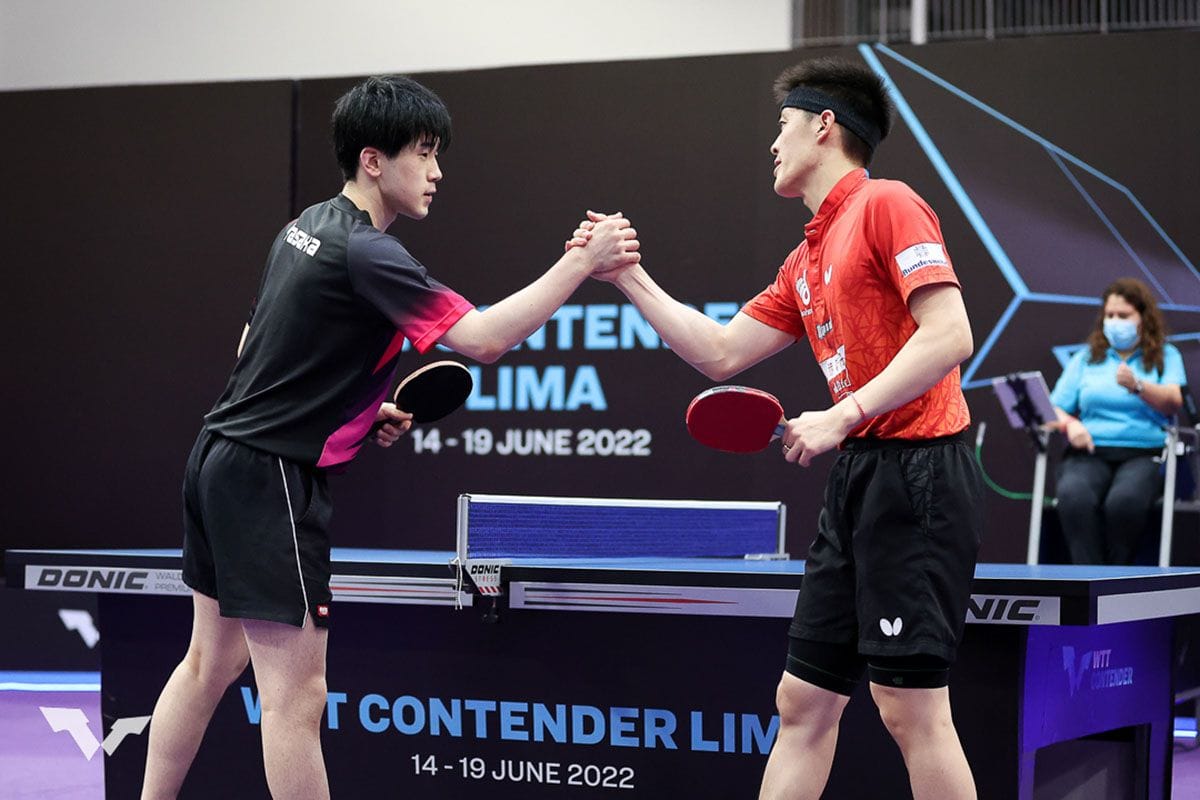
— You faced a Korean defensive player, Kang Dongsoo in the semi-final. He is good at attacking and his playing style is unique, so it must have been a very tough match. Could you describe the match?
Yes, I think Kang Dongsoo was a surprising semi-finalist. It was very special and very fun to play, because I had not played against a defender other than Ruwen Filus (GER) for a long time. Also, I was looking forward to the best-of-seven match. However, he was very tough. He was very fast and attacked very well using his forehand, he played very bravely and pushed me to the limit. It was also a very physical match because he played in a very safe way and had a variety of services and many attacking patterns, so it was really difficult to read the game. I always tried to stay focused, and I have quite a lot of experience against defenders already, so I managed to win the very close 6th game and finish the match; otherwise, I would have gone to the 7th game, a coin toss (the match we are not sure who will win). But at the end I was very happy. I think he has a bright future because he had beaten very good players in the previous rounds who are normally known to play well against defenders, like Tiago Apolonia (POR) and Hugo Calderano (BRA). So, I think that will mean a lot for him in the future as well.
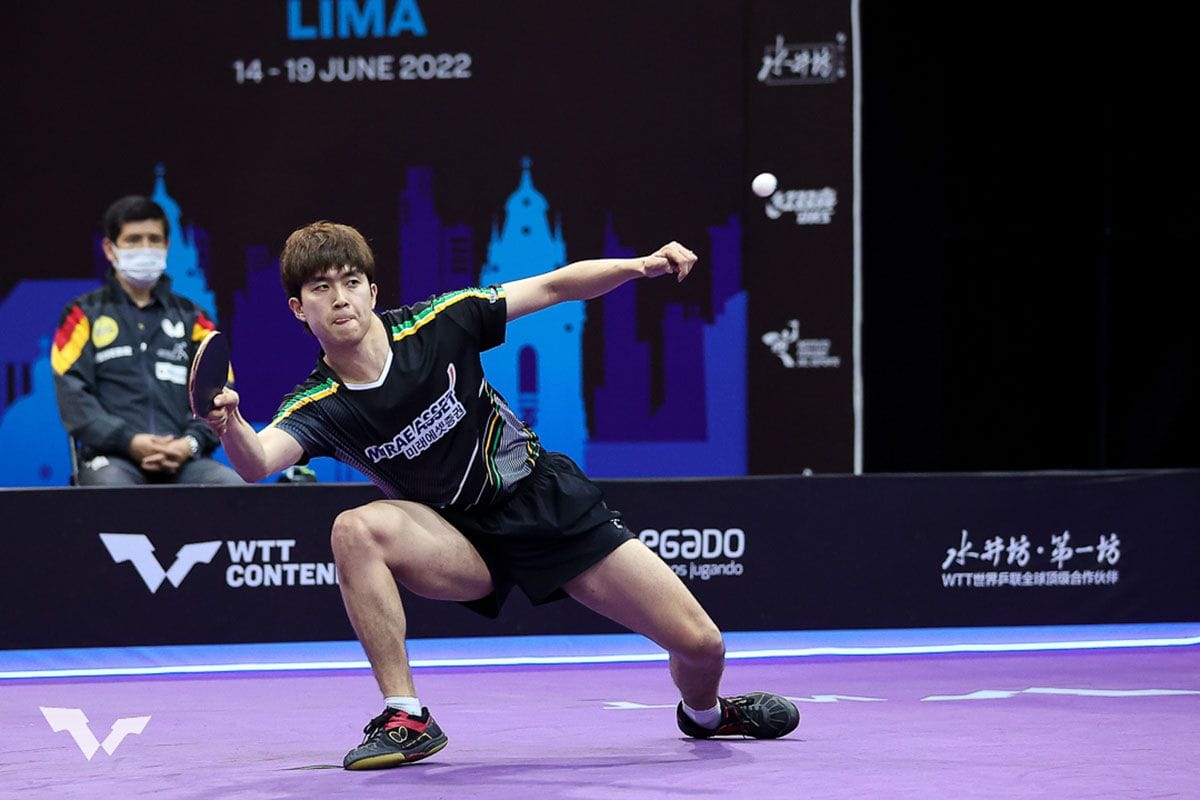
— Regarding the final against Dima (Dimitrij Ovtcharov, GER), we believe it must have been difficult to develop the game plan as you know each other very well. In fact, it was a very close match; you were down 0-2, came back and led 3-2, Dima tied 3-3 and finally the match decider went to the seventh game. Could you look back on how you played in the final?
Yes, the final against Dima; of course, we know each other very well and we have been good friends, practising a lot together in Düsseldorf. We spoke and helped each other during the tournament as well.
If I look back on the final, I think Dima was very well prepared, mentally as well as tactically. He was too strong in the first two and half games. I would say he was much better than me and he had prepared for my every stroke. Somehow, I was lucky to win the third game. I think it would have been a very difficult match if I had been 0-3 behind; it is generally very though against Dima. I think it was almost impossible to win because he was playing with such high precision and concentration. As I said before, I was very lucky that I could win the third game and afterwards Dima made one or two more easy mistakes and I became surer about my game and got some easy points which helped me to push through the whole match. And at the end, I think it was very close. This could have gone either way on the 7th game. I had a 5-1 lead, then he came back quite fast and led 8-7, but luckily I could win the match in the end. I stayed aggressive as I did the whole tournament. I think the key point was the third game which could have turned around the outcome; otherwise, I am quite sure that Dima would have won this tournament.
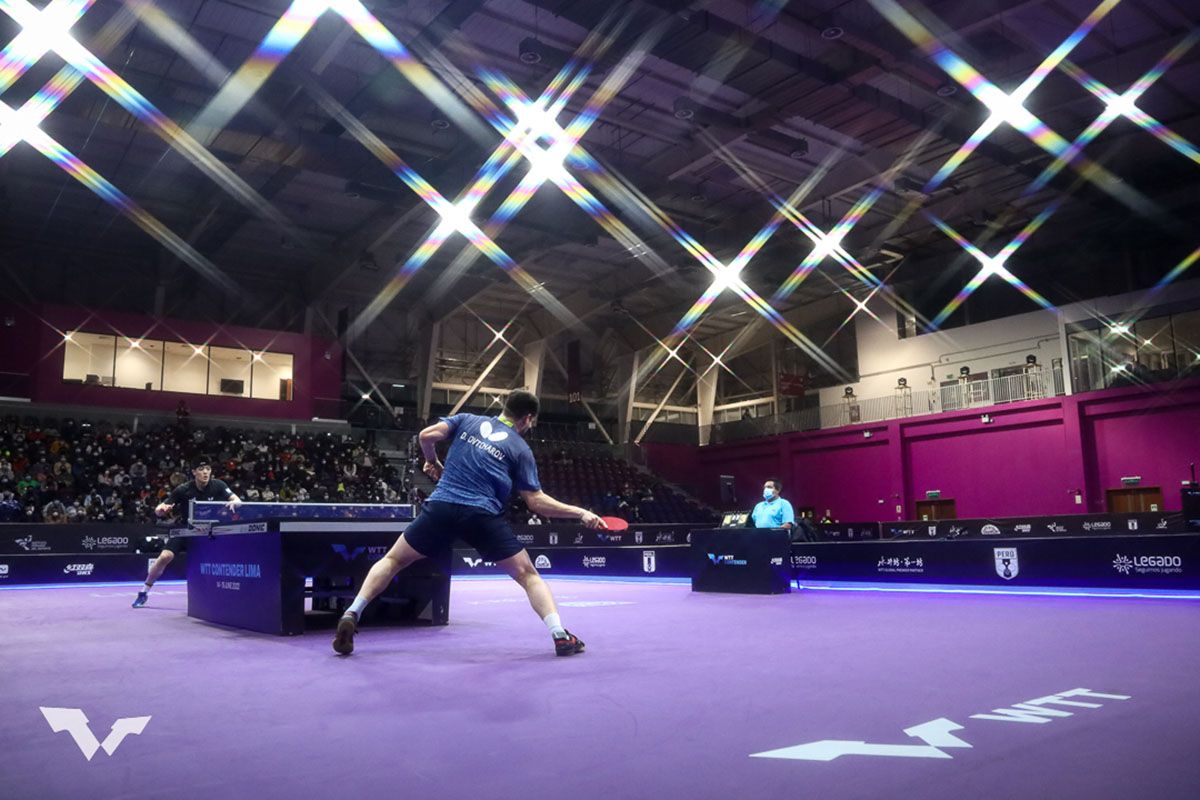
— You have been playing well this season with good results at WTT tournaments and reached 10th, a career high, in the world ranking (as of 21 June, 2022). What have you improved technically?
Yes, this season has been quite good for me so far. Reaching a top 10 in the world is something very special and very difficult to achieve. I think what I have improved technically. I put more precision into each individual stroke. So maybe that has brought the biggest impact to my game. But other than that, I have not changed anything technically very much because the fundamentals of my techniques are there, and they are okay or good hopefully. And I still go with them because I do not see any deficit.
— Do you often get advice from Mr. Qiu Jianxin? As a father and a coach, how does he influence you?
Of course, I have been receiving a lot of attention and a lot of advice from my father, and we are in constant contact about my game. He watches almost every game of mine despite it is sometimes being tough due to time difference. He gives me small feedbacks to improve and how to prepare for the next matches. Of course, it helps me a lot. For example, he was with me for five or six weeks prior to the World Table Tennis Championships in Houston. I think I made the biggest progress during that time when my father was there. He also watched my practice and I think that had the big influence on my game. I think in the future, we will have a lot of contact specially to help me progress my table tennis since he has been with me from my childhood, and he knows my game better than anyone else.
— Why did you choose to be a penhold player when the shake-hand styles are overwhelmingly popular and when did you decide that?
It is quite easy to explain why I became a penhold player; it is because I could not make the backhand stroke with a shake-hand racket so well. Because a shake-hand grip was just too long for my hand, I always had problems to bend my wrist on my backhand, so my father said as a joke, “Try a penholder racket”. When I started table tennis, Wang Hao was in his prime and was very famous. So, I just tried and directly adapted and that’s it; I started to play with a penhold racket instead of shake-hand.
— As a penhold player, what do you think is the advantage of your playing style? Could you advise young penhold players how to become international top players?
I think the biggest advantage of a penholder is the different racket angles, each return unique for the opponent. Because there are not so many penhold players anymore, every penhold player is unique and you cannot practise a lot with them. So, I think I feel a slight advantage when I play someone new for the first time because he has to adapt to my returns, spin and techniques. I think a big advantage, of course, is over-the-table techniques and then service and receive. Normally the wrist is more flexible for a penhold player, which is also the advantage during rallies. Ma Lin is the classic penhold player, he was very strong over the table and in service, receive, third ball attack, which is old fashioned but still if you can do it, it can be very important for your game.
You just have to believe in yourself and practise a lot. I mean many strong players, such as Ma Lin, Wang Hao, Xu Xin, and Wong Chun Ting have worked hard. I think there will be a future for penholders. So, you should use the advantage the penholder has and create your own style.
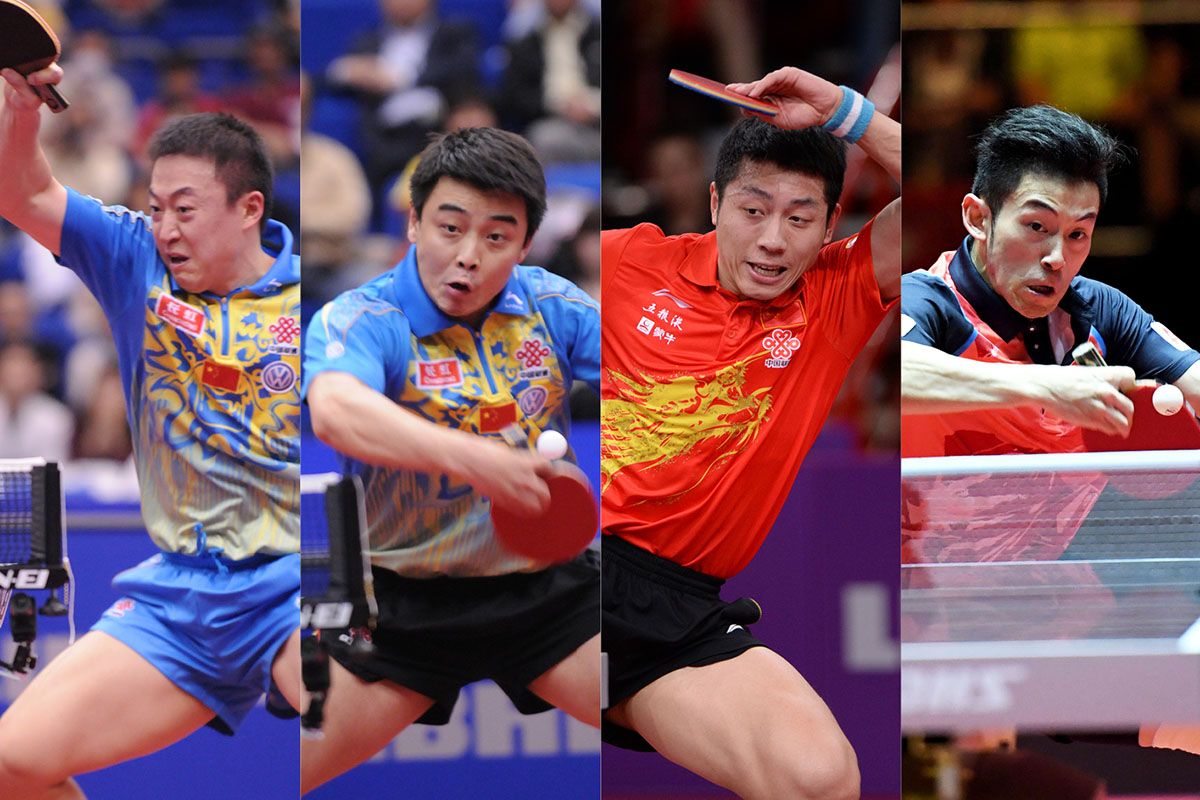
— What rubbers and blade do you use now? Also, what do you fell is the advantage of using those equipment?
I am using at the moment TIMO BOLL ALC, a custom-made penholder blade from Butterfly. For my forehand side, I am using DIGNICS 09C and backhand, DIGNICS 05. I feel the ALC blade is very fast but still has good control since I have been playing with it for many, many years. So, for me the blade has just a perfect feeling for every ball. DIGNICS 09C for my forehand is especially very good for me. If I make a counter topspin stroke against topspin, it provides me with the highest safe feeling and much higher trajectory than the rubbers I used before. Therefore, I am sure to make my forehand safely on the table in the crucial moment. So, I think this is a big advantage of the rubber. On the backhand side I am using DIGNICS 05. Because I feel my backhand needs a bit more speed than spin. Therefore, I think this is the perfect combination because I play mostly very close to the table; when I stroke on my backhand side and the speed of DIGNICS 05 is helping me a lot to put my opponent under pressure so that I can use my forehand efficiently.
— At the conclusion of the interview, please tell us about your goals in short and long terms.
I do not know if you see the Olympics in 2024 is in a short or long term. But for sure, to be selected in the Olympic team for Germany is a typical goal. I mean, we have rich tradition and history with a lot of medals in the Olympics in the past few decades. So, yes, I hope I can be also part of the team. I mean if you want to be in the German team, you must be very strong. This is one of my biggest goals.
For the short or long-term goal setting in general, my mind is always set to improve my game and no matter what tournaments are coming up, the most important thing is to get better.
Dang Qiu is a thoroughbred; his father is Qiu Jianxin, a former Chinese National Team player, but he is a native German, born and raised in Germany. He has mastered the traditional technique for penholders and continues to evolve at the age of 25. We shall keep an eye on his future performance and success.
